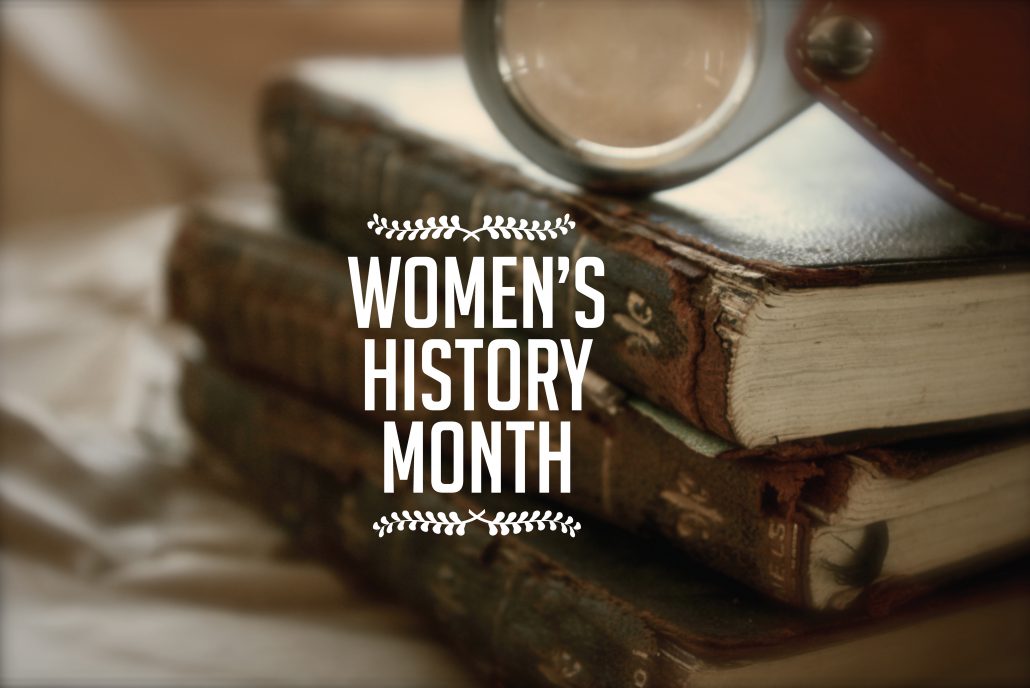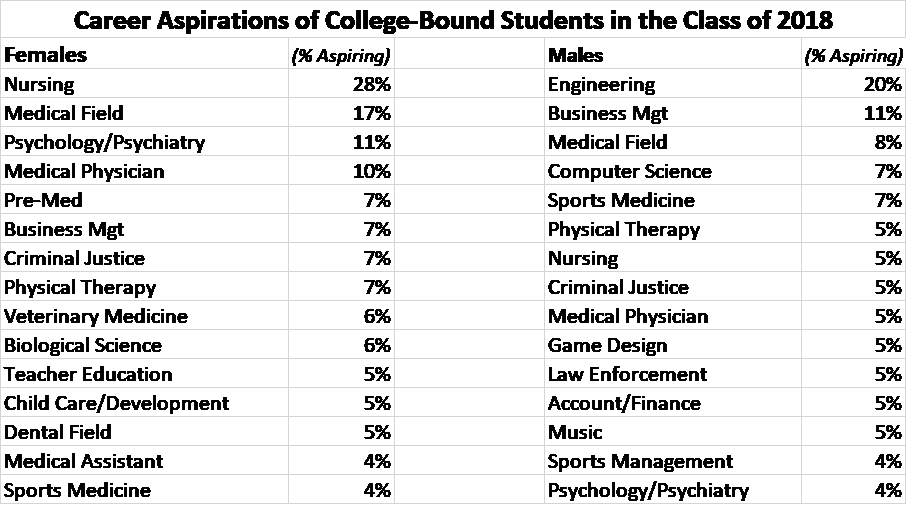 View/Download this Digest as a PDF.
View/Download this Digest as a PDF.
Women’s History Month spotlights women’s contributions to society and the economy – contributions often neither appropriately recognized nor fairly compensated.
Compared to a half century ago, women are better educated, a larger segment of the paid workforce, and employed in more traditional male occupations. Yet a landmark 2011 study of women’s economic well-being found progress toward economic equity is limited by women’s continued concentration in low-paying professions like education and health care (pg. 33).[1]
The Student Research Foundation’s Fall 2017 survey of 17,238 college-bound high school seniors suggests history may be repeating itself.[2] Striking gender differences in students’ career aspirations suggest women will continue to struggle for parity – absent pay equity.
As the table shows, gender seems strongly correlated with career choices of the Class of 2018:
- Females most often aspire to be nurses, while males most frequently aspire to be engineers (28% and 20%, respectively).
- Females’ top 15 career choices include 10 health careers, compared to only 6 among males.
- Females’ top 15 career choices include only 1 STEM field (Biology), compared with 3 among males.
- Females’ (but not males’) top aspirations include other lower-paying (yet essential) professions traditionally dominated by women: Teacher and child care.
As we celebrate Women’s History Month, we see some evidence that students are choosing to ignore stereotypes. Nursing is the 7th most frequently mentioned aspiration for boys, indicated by 5%. Business management and criminal justice are among the top 15 career choices of both girls and boys.
However, if society values the work of well-educated professionals in the low-paying fields historically dominated by women, is it time to take a serious look at pay equity? The recently victorious West Virginia teachers, including one who works as a cashier at Hardees on weekends to make ends meet, would probably agree.[3]

[1] Women in America: Indicators of Social and Economic Well-Being (2011). See https://www.census.gov/library/publications/2011/demo/womeninamerica.html
[2] This analysis is based on results of a paper survey that was administered by the Student Research Foundation on behalf of the Research Consortium on Health and Science Career Pathways, the Research Consortium on STEM Career Pathways, and the Research Consortium on Career Pathways and 21st Century Skills. The results presented here are from senior high school students who expressed a desire to continue their education at a four-year college.
[3] http://pubsecalliance.com/teachers-get-5-after-strike-victory-for-cops-too/

